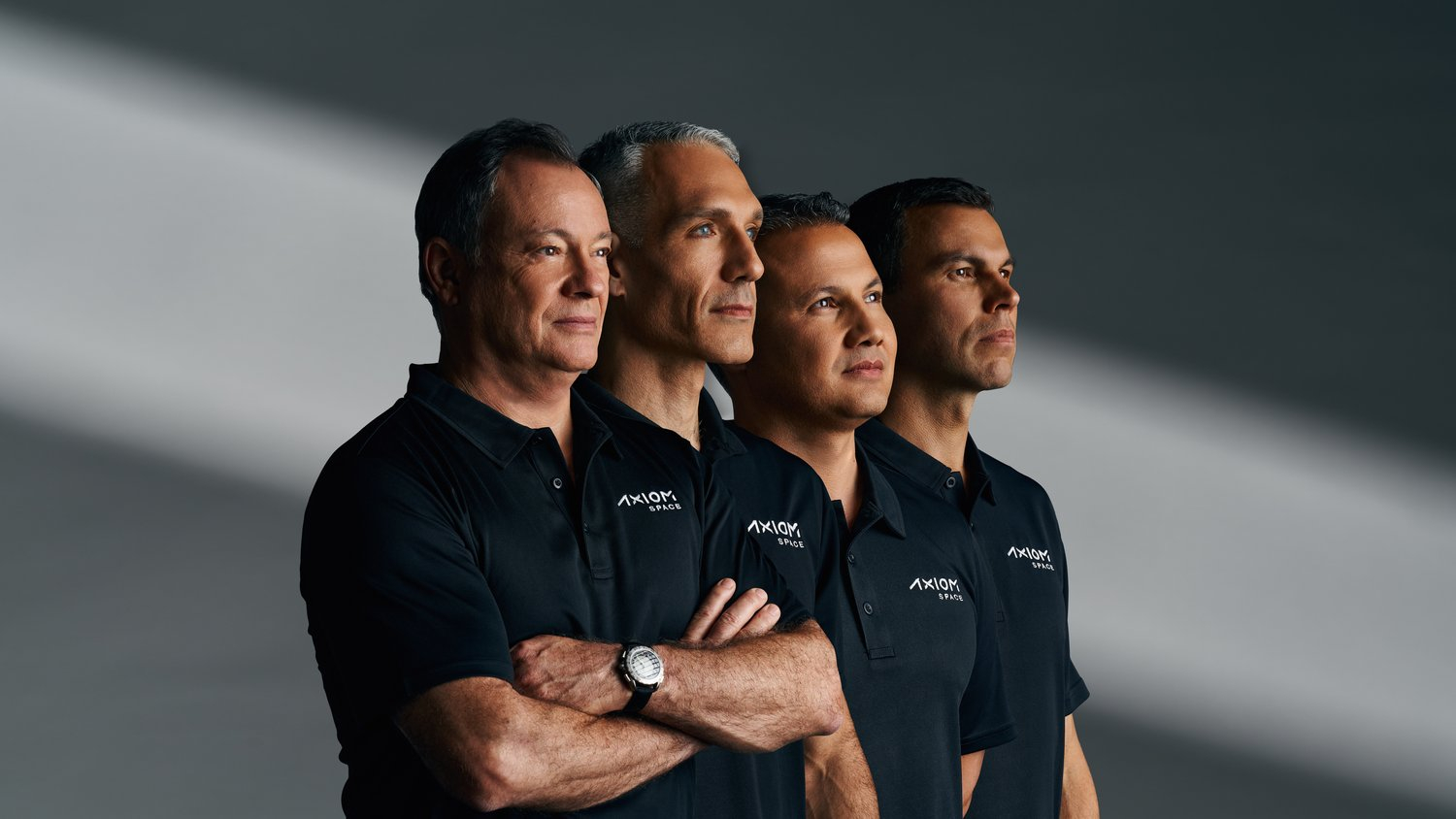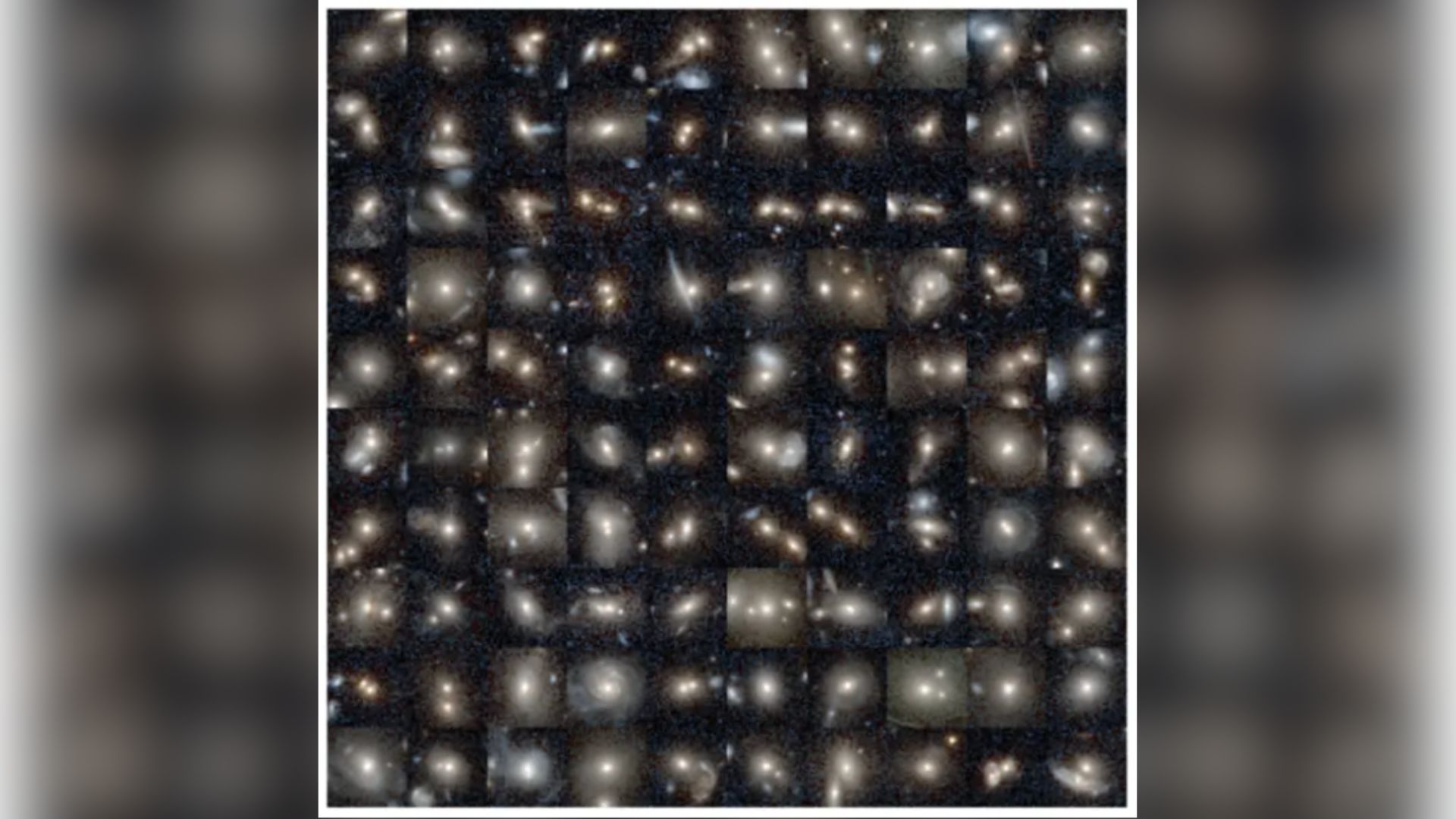Axiom Space's 3rd private astronaut crew ready for ISS mission in 2024
'I'm very happy to be a part of this mission and this great crew.'

Axiom Space's third private astronaut mission is on track for a liftoff next year.
Houston-based Axiom Space's Ax-3 flight remains on track for a launch toward the International Space Station (ISS) no sooner than January 2024. The four crewmembers, including a former NASA astronaut, a European Space Agency reserve astronaut and a passenger who flew to suborbital space with Virgin Galactic earlier this year, spoke with journalists on Monday (Oct. 16) about their excitement.
"I'm very happy to be a part of this mission and this great crew," Swedish astronaut Marcus Wandt said during the livestreamed press conference, emphasizing that Ax-3 will include representation from government and industry alike in his country. "I'm also proud of being trusted by Sweden and Europe to represent Sweden [in] space and throughout this mission, which to me is so much more than the 14-plus days in space, and my background as a fighter pilot and test pilot as well."
Ax-3 will launch to the ISS from NASA's Kennedy Space Center in Florida, using SpaceX's Crew Dragon spacecraft and Falcon 9 rocket. (Axiom signed an agreement with SpaceX in 2021 to launch three additional crews to space after the pioneering mission Ax-1, which flew in April 2022; additionally, SpaceX is the only fully certified commercial spacecraft for NASA missions so far.)
Related: Axiom Space names Ax-3 astronaut crew for SpaceX mission to ISS
The mission will be led by former NASA astronaut Michael López-Alegría, a dual U.S.-Spanish citizen who also commanded Ax-1. He will be joined by Wandt, who was called up from his reserve astronaut status when assigned to Ax-3; Italian Air Force Col. Walter Villadei, who flew to suborbital space on Virgin Galactic's first commercial launch this past June; and Turkey's first citizen in space, Alper Gezeravcı. It will be López-Alegría's sixth space mission, Villadei's second and the first for Wandt and Gezeravcı.
López-Alegría said the training is going smoothly and that the crew has learned a lot since Ax-1, when other ISS astronauts had to step in to help the crew with their tasks. He said Ax-1 was a startup mission accomplished on an "aggressive timeline" and that Axiom Space has matured its processes since that time.
Breaking space news, the latest updates on rocket launches, skywatching events and more!
For the next mission, Ax-2 in May 2023, commander and former NASA astronaut Peggy Whitson was tasked with fewer responsibilities to give her time to help the crew; in the meantime, NASA stipulated that all commercial missions must have a former agency astronaut at the helm.
"She was more available to help the rest of the [Ax-2] crew with their experiments, and Ax-3 will follow suit," López-Alegría said. Other changes have been made with training, and with scheduling tools to help the crew manage their time in orbit. As for future missions, he added, the schedule with Axiom Space is comfortable enough for him and Whitson to trade off commands for the foreseeable future, without the need to hire other former agency astronauts yet.
Gezeravcı was selected as an astronaut candidate in May from a reported pool of 36,000 applicants in Turkey. As he readies for the first Turkish spaceflight, Gezeravcı said he hopes the effort "is going to put a remarkable footprint on our prideful centennial" and will also help Turkey "solidify the unity" following a devastating earthquake earlier in the year.
Villadei reached suborbital space (under the U.S. definition, not that of the International Astronomical Federation) during an Italian Air Force flight in June with Virgin Galactic. "From the training standpoint, I have to say that it was very useful to me as a kind of initial test flight," he said. Villadei emphasized that he is also bringing in years of experience training in Russia and with NASA under previous Air Force initiatives.
"For people that want to fly to the ISS, it [Virgin Galactic] is not strictly needed, or necessary," he added. "The training is different. The experience is similar. In just an hour and a half you are going through all the stages of a flight – from the launch, microgravity and then the reentry. But it's definitely a nice platform to test and to strengthen all these training capabilities."

Elizabeth Howell (she/her), Ph.D., was a staff writer in the spaceflight channel between 2022 and 2024 specializing in Canadian space news. She was contributing writer for Space.com for 10 years from 2012 to 2024. Elizabeth's reporting includes multiple exclusives with the White House, leading world coverage about a lost-and-found space tomato on the International Space Station, witnessing five human spaceflight launches on two continents, flying parabolic, working inside a spacesuit, and participating in a simulated Mars mission. Her latest book, "Why Am I Taller?" (ECW Press, 2022) is co-written with astronaut Dave Williams.
